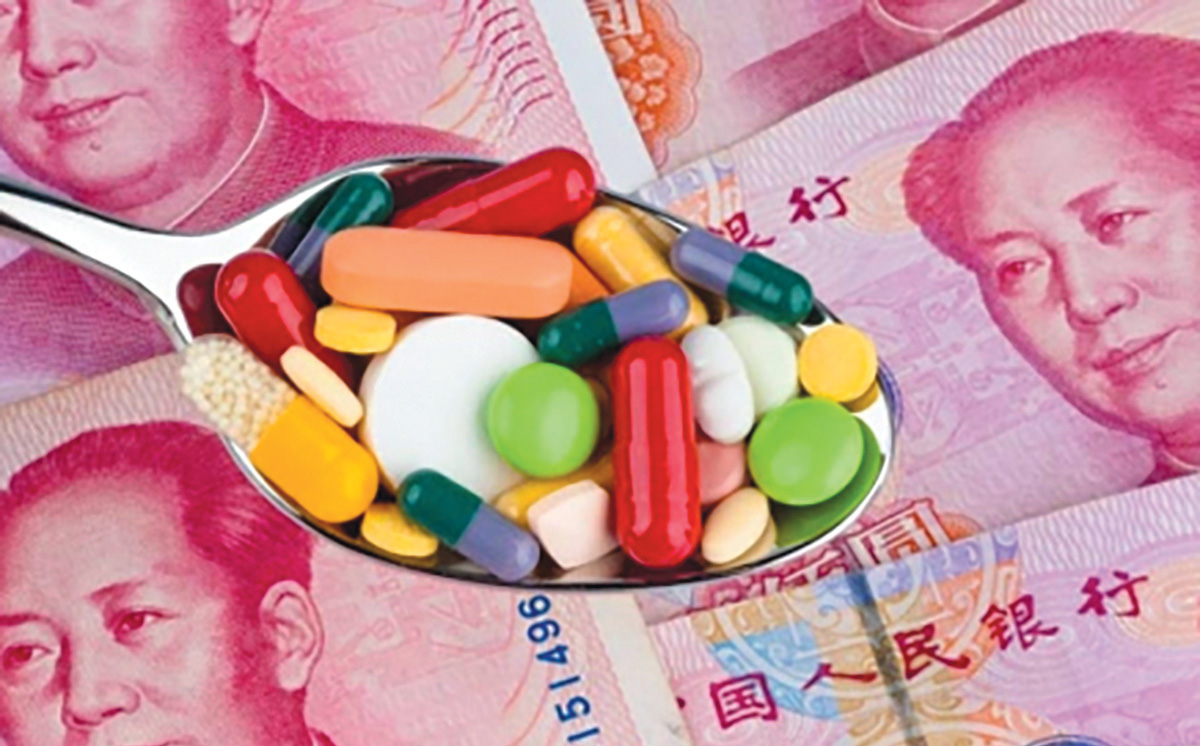
|
Michelle Hallmark Powell
|

Do you know where your pills are made? Your prescription bottle has no country of origin listed on the bottle. This matter has been brought to the attention of the leadership of the FDA and to the National Association of Boards of Pharmacy—this overseer of all state boards of pharmacy. Unfortunately neither the FDA or National Association of Boards of Pharmacy care much about letting patients know the crucial details about their medications.
In the 1990s, the United States, Europe and Japan manufactured 90 percent of the global supply of key ingredients in the world’s medicines and vitamins. Now, 80 percent of active ingredients in medicines come from China and India.

|
80 percent of antibiotics are made in China. Ibuprofen, acetaminopen, penicillin and heparin are also largely dependent on China’s manufacturing.
|
|
While India is supposedly a good friend of the United States, Communist China is not. For drug industries, China’s command over the drug manufacturing will have a lasting impact.
When the FDA was created in 1906 as inspectors of the drug industry in the U.S. pharmaceutical ingredients were largely made in the United States. As globalization of pharmaceutical ingredients occurred, the FDA lacked the capability to inspect foreign facilities on a large scale. Former President Bill Clinton eased trade restrictions with China in 2000 and over 700 Chinese plants began making drugs and active ingredients for the United States, with the FDA inspecting about 15 of these plants a year.
Dr. Janet Woodcock, director of the FDA Center for Drug Evaluation and Research says the FDA is on top of things, but other experts say the United States is very vulnerable when it depends on other countries to make essential drugs. China and other countries do not have the consumer protection and product liability laws like the United States has. They also point out that the FDA cannot control what manufacturers in other countries do and say no amount of FDA inspection can ensure a safe and reliable supply of vital medical products.
After President Donald Trump called out the manufacturers of cars and air conditioners, saying manufacture it in the U.S or face punitive tariffs, the same must be applied to the drug companies. For the most part, about 75 percent of U.S. spending on drugs is for products made domestically. However, because of the sheer size of the American market—the biggest in the world by far—$86 billion of medicine are brought in from the rest of the world. Still this makes the U.S. the biggest drug importer on earth.
As Chinese companies have taken control of the pharmaceutical market in the United States, a hidden health crisis is building. The FDA is inspecting only a small number of the Chinese companies that manufacture U.S. drugs.
Meanwhile, the drugs making their way into the United States often fall far below U.S. safety standards. Some of these drugs are not being inspected at all. The failure of Chinese drugs to meet U.S. quality standards is exacerbated by the volume of imported drugs. China is the primary source of many crucial drugs, including penicillin, heparin, and medications essential for surgeries.
Now, here we are in 2020, with a pandemic occurring in the country, and we find out that China can withhold much needed pharmaceuticals or ingredients required for us to manufacture the products ourselves. We also are told this is a National Security Threat. How have we put ourselves in this position? Letting the safety of our population rely on China, a country who wants to be the number one world leader—and frankly despises both us and our freedom—control such an important thing as our health and wellbeing? By letting Big Pharma, Lobbyists, and Greed run our government, we have put ourselves in this position.
Marsha Blackburn, Senator from Tennessee said that many of the pharmaceuticals necessary for treating some of these viruses are made only in China and we are completely dependent upon them. These are called APIs (active pharmaceutical ingredients). Thankfully she is introducing a bill that would bring back production to the U.S.
If you are as outraged about this as I am please contact your Senators and Representatives. You might also consider writing a letter to the FDA telling them this is totally unacceptable. We need to bring home all of the pharmaceutical producing and manufacturing. Only this action will provide safety and protect our people. 
|



